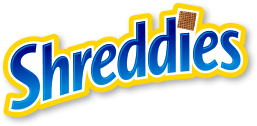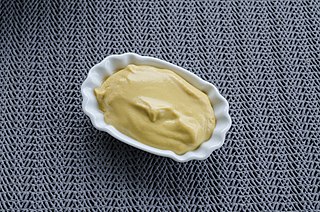
Dijon is a city that serves as the prefecture of the Côte-d'Or department and of the Bourgogne-Franche-Comté region in eastern France. As of 2017 the commune had a population of 156,920.

Nabisco is an American manufacturer of cookies and snacks headquartered in East Hanover, New Jersey. The company is a subsidiary of Illinois-based Mondelēz International.

R. J. Reynolds Nabisco, Inc., doing business as RJR Nabisco, was an American conglomerate, selling tobacco and food products, headquartered in the Calyon Building in Midtown Manhattan, New York City. R. J. Reynolds Nabisco stopped operating as a single entity in 1999. Both RJR and Nabisco still exist.

Kraft Foods Group, Inc. was an American food manufacturing and processing conglomerate, split from Kraft Foods Inc. on October 1, 2012, and was headquartered in Chicago, Illinois. It became part of Kraft Heinz on July 2, 2015.

A.1. Sauce is a brand of brown sauce produced by Brand & co, a subsidiary of Premier Foods in the United Kingdom and in North America by Kraft Heinz. Sold from 1831 as a condiment for "fish, meat, fowl and game" dishes in the United Kingdom, the makers introduced the product to Canada, and later to the U.S. where it was later marketed as a steak sauce.

Shreddies are a breakfast cereal marketed in Canada, the United Kingdom, and Ireland. It was first produced in Canada in 1939 by Nabisco. The Shreddies brand is held by Post Consumer Brands in Canada, and Nestlé in the United Kingdom and Ireland.

French dressing is a creamy dressing in American cuisine that varies in color from pale orange to bright red.

Wheat Thins is a brand of baked whole grain snack food crackers distributed in the United States and Canada by Mondelez International. The product is also available in Australia through wholesaler USA Foods. Vegetable Thins, Oat Thins, Pita Thins, and Rice Thins, which are all spinoffs of Wheat Thins, are available in Canada and some regions of the United States. Wheat Thins themselves come in many flavors and varieties. Nabisco first introduced the product in 1947.

Inglenook is a winery that produces estate bottled wines in Rutherford, California, in the Napa Valley.

Wish-Bone is an American brand of salad dressing, marinades, dips and pasta salad. The original salad dressing was based on a recipe served at the Wishbone restaurant in Kansas City, Missouri, founded by ex-soldier Phillip Sollomi in 1945 along with Lena Sollomi, Phillip's mother. The Italian dressing served at the Wishbone was based on a recipe from Lena Sollomi's Sicilian family which was a blend of oil, vinegar, herbs and spices. Demand for the salad dressing proved so high that Phillip started a separate operation to produce it for sale, making it by the barrel. The brand was acquired by Lipton, part of the Unilever portfolio, in 1958, and was manufactured in the Kansas City area. In 2013, Pinnacle Foods acquired Wish-Bone from Unilever. In turn, ConAgra acquired Pinnacle Foods on October 26, 2018.

Gulden's is the third largest American manufacturer of mustard, after French's and Grey Poupon. One of the oldest continuously operating mustard brands in the United States, it is now owned by agricultural giant ConAgra Foods.

Gray Poupon is the second solo studio album by American rapper Doap Nixon. It was officially released on February 28, 2011 on iTunes via Q-Demented. Production was handled by C-Lance, DC the Midi Alien, DJ Kwestion, Hutch, Illbred, Level 707, Many Beats, Rhythmatik, Pokerbeats, Stu Bangas and Hitfarmers. It features guest appearances from Block McCloud, Burke The Jurke, Capo, Celph Titled, Crypt The Warchild, DJ Kwestion, Journalist, Killer Rellik, Planetary, Sick Six and Chief Kamachi.

Maille is a brand of condiments, which originated as a vinegar manufactury in Marseille, France, in 1723. Today it is a subsidiary of multinational consumer goods company Unilever, which produces the brand's mustard at plants globally and markets cornichons, stoneware, salad dressings, kitchen gifts, and cooking oil under the Maille name in company stores, through global retail distribution agreements, and online since 2007.

Amora Maille Societe Industrielle, also written as Amora-Maille, is a French company and brand that manufactures condiments. The company is a subsidiary of Unilever and the leading condiment maker in France. The company operates two major brands, Amora and Maille.

Vinaigrette is made by mixing an edible oil with a mild acid such as vinegar or lemon juice. The mixture can be enhanced with salt, herbs and/or spices. It is used most commonly as a salad dressing, but can also be used as a marinade. Traditionally, a vinaigrette consists of 3 parts oil and 1 part vinegar mixed into a stable emulsion, but the term is also applied to mixtures with different proportions and to unstable emulsions which last only a short time before separating into layered oil and vinegar phases.
Heublein Inc. was an American producer and distributor of alcoholic beverages and food throughout the 20th century. During the 1960s and 1970s its stock was regarded as one of the most stable financial investments, earning it inclusion in the Nifty Fifty.

Mustard is a condiment made from the seeds of a mustard plant.

Belvita, sometimes stylized as belVita or BelVita, is a brand of breakfast biscuit introduced originally in France in 1998 as LU Petit Déjeuner by Kraft Foods Inc. and currently owned by Mondelēz International.

Dijon mustard is a traditional mustard of France. It is named after the city of Dijon in Burgundy, which was the center of mustard making in the late Middle Ages and was granted exclusive rights in France in the 17th century. First used in 1336 for the table of King Philip VI, it assumed its current form in 1856 when Jean Naigeon of Dijon replaced the vinegar usually used in prepared mustard with verjuice, the acidic juice of unripe grapes.


















